#resources for women veterans
Text
here is a list of my top charities (plus background checks), so even if you're not in a place that you're able to donate right now, maybe you can share this and it can get to someone who is. if you have any more ideas of what to add please reblog or let me know too. Maybe we can get something going here? Without collective action what do we have?
Palestinian Children's Relief Fund–Provides medical and humanitarian aid and resources to children in Palestine. They are volunteer based and have opportunities to donate as well as volunteer. (4/4 rating by Charity Navigator)
Women for Women International–Provides aid and education to women all over, especially because women's needs including menstrual and maternity aid can often be overlooked. They have a lot of information on their website about where and how they help which is a lot to summarize here, but their goal is to get women to a place of self sufficiency in order to thrive rather than just survive. (4/4 rating by Charity Navigator)
Period.org–Works to end period poverty and shame through advocacy, education, and distribution. Stressing the importance of community involvement, Period. relies on youth-led chapters to serve communities on a local level. (4/4)
Veterans for Peace–Established in 1985, Veterans for Peace is an organization of US veterans who speak out against US imperialism and militarism. As people who have witnessed the horrors of war they have the courage to speak against it with their press releases, chapters, and organized projects on both national and international projects. (3/4)
Honor Liberty Veterans and Justice for Liberty–June 8, 1967 the naval ship USS Liberty was attacked by israeli planes and torpedos. The Liberty was borderline unarmed and had limited defenses against the attack. 34 sailors were killed and 172 injured, but none received justice or the proper investigation they deserve. Both organizations hope for an end to the cover-up and the beginning of the dignity they deserve (not rated but please sign their petition if you feel so compelled)
Farmer John Coalition–An organization of family farmers seeking to increase security for themselves as well as the communities they serve through stronger legislation. As smaller farms are pushed out by large corporate farms, it creates an unsustainable cycle both economically and ecologically. Farmer John aims to support both farms and communities (Not rated, but petitions don't hurt)
People not Mascots–I get not everybody agrees, but if I was a kid and my culture and ancestors were being used as a mascot by people who don't even know how to pronounce the name correctly I'd be upset too. People not Mascots raises awareness for Indigenous cultures, communities, and histories while advocating against the use of their names and images as mascots in secondary schools. (PETITIONS! ANOTHER PETITION)
#mara's nav#signal boost#please?#free palestine#free gaza#pcrf#palestine#palestinian children's relief fund#palestine resources#women for women#women for women international#charity#fundrasier#fundraising#period poverty#menstruation education#veterans#veterans for peace#honor liberty veterans#justice for liberty#justice for palestine#farmer john#farmer john coalition#petition#activism#people not mascots
10 notes
·
View notes
Text
Please consider spending time to learn more about Afro-Palestinian experiences and living under occupation while Black and Palestinian, along with Afro-Palestinian resistance efforts throughout the years. Here are some valuable articles and resources:
Articles:
In the heart of the Old City, generations of Afro-Palestinians persevere in the face of occupation by Mousa Qous
Putting the pieces together: Fragments of oral history in exile by Samah Fadil
‘Afro-Palestinians’ forge a unique identity in Israel by Isma'il Kushkush
The Africans of Jerusalem by Mousa Qous
The History Of Afro-Palestinians, Past And Present by Fayida Jailler
African-Palestinian community’s deep roots in liberation struggle by Electronic Intifada
Remembering Fatima Bernawi: Historic Palestinian fighter and liberated prisoner (1939-2022) on Samidoun
Fatima Barnawi, founder of Palestinian Women's Police and veteran prisoner, dies at 83 by Middle East Eye
On Fatima Bernawi, Women's Struggle, and Black-Palestinian Solidarity by Elom Tettey-Tamaklo
Afro Palestine: the African Diaspora in Palestine (not an article but a quick video summary of Afro-Palestinian history)
Note: highly recommend checking out Mousa Qous, the founder of the African Community Society, for his writings above all!
African Community Society of Jerusalem:
Their website— organization centered around the Afro-Palestinian community in Jerusalem.
General info about the group
ACS's instagram to learn more about Afro-Palestinian history.
Here is a write-up about the African Community Society, their impact within Palestinian society, and Afro-Palestinian history in Jerusalem specifically. Highly recommend taking the time to read this if you can.
Please take the time to watch this Documentary by Stephen Graham about former Israeli prisoner Ali Jiddah where he takes the viewer on a tour throughout Jerusalem and describes the unique struggles the Afro-Palestinian community face. He is quite a friendly guy and very funny:
youtube
#palestine#palestinian history#palestine history#palestina#stand with palestine#i'll probably add more links as i come across them#Youtube
15K notes
·
View notes
Text
The Women's Airforce Service Pilots (WASP): Soaring Through Gender Barriers 🛩🐝
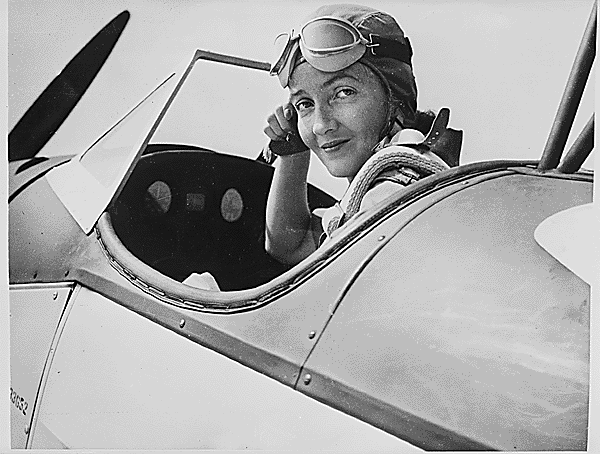
During World War II, while the world battled on various fronts, a quieter revolution took flight in the United States. The Women's Airforce Service Pilots, or WASP, were a pioneering group of female aviators who defied traditional gender norms, proving that women could excel in roles historically reserved for men.
Origins of the WASP
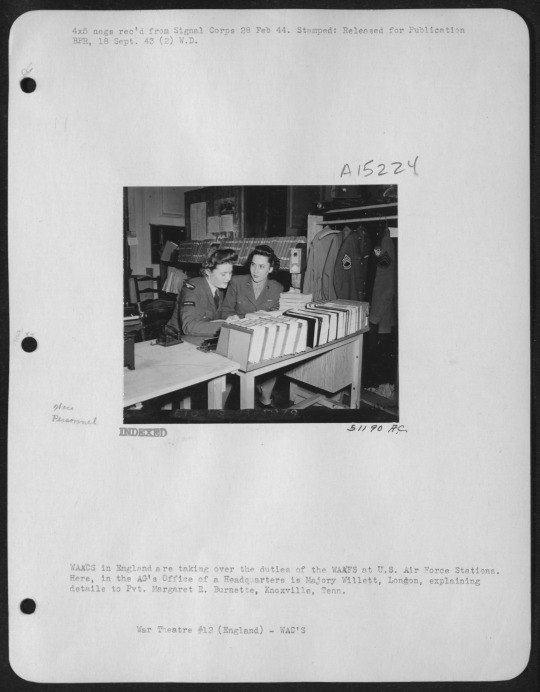
With many American men serving overseas, the country faced a need to tap into underutilized domestic resources. The WASP program, initiated in 1943, merged two existing women's flying programs: the Women's Flying Training Detachment (WFTD) and the Women's Auxiliary Ferrying Squadron (WAFS). These women, under the guidance of aviators like Jacqueline Cochran and Nancy Love, would play a critical role in the war effort.
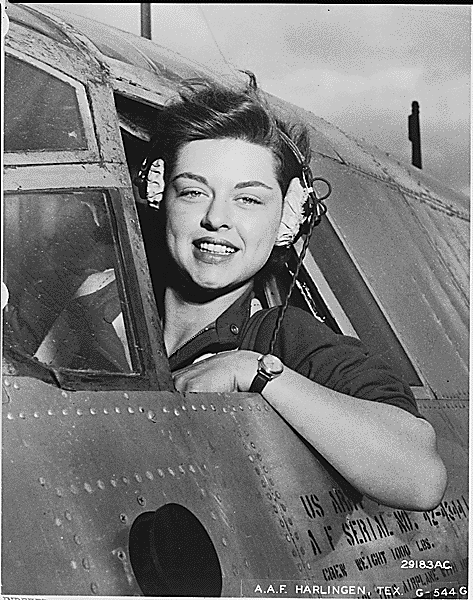
Duties and Contributions
The WASPs were trained pilots who contributed in non-combat roles. They ferried military aircraft across the country, tested planes, instructed male pilots, and even towed targets for live anti-aircraft artillery practice. They fulfilled the non-combat roles formerly occupied by male pilots, so more male pilots were available for combat roles. Women were not allowed to fly combat missions until [many years later, in 1993.. By the end of the war, WASPs had flown every type of military aircraft, logged over 60 million miles, and transported nearly 12,650 aircraft of 78 different types.
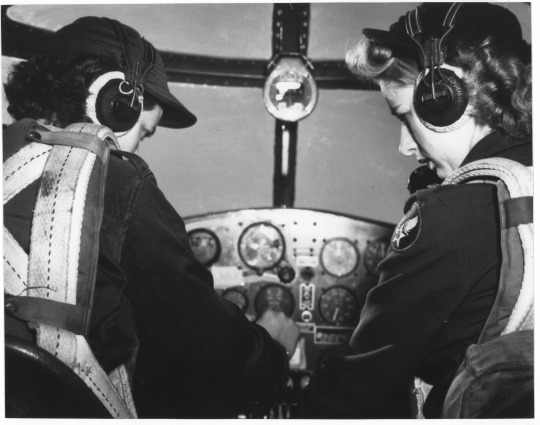
Challenges and Gender Biases
Despite their significant contributions, WASPs constantly faced skepticism and discrimination. They weren’t considered members of the military but were seen as civil service employees. They had to pay for their own uniforms, lodging, and sometimes even their way home after the end of their service. If a WASP pilot died during service, her burial costs fell on her family or fellow pilots.
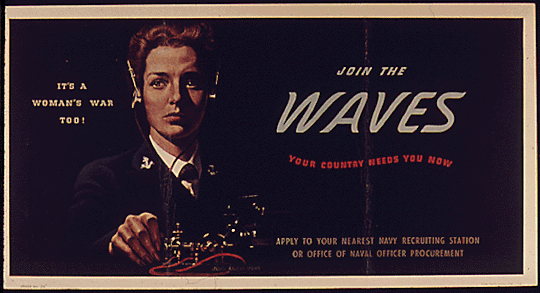
Recognition and Legacy
In 1977, after years of advocacy by WASP veterans, President Jimmy Carter signed legislation granting WASP pilots veteran status. Later, in 2009, they were awarded the Congressional Gold Medal for their service, sacrifice, and pioneering spirit. The legacy of the WASP program not only paved the way for women's integration into the U.S. Air Force but also demonstrated the capabilities of women in high-pressure, technical roles.
233 notes
·
View notes
Text
SJM + Eugenics + Ableism in her Writing
thinking about how insidious eugenics can come up in writing- specifically SJMs writing. Personally I take a lot with a grain of salt bec I don't think a lot of ppl realize how fucking deeply entrenched and rooted it is in everything and more often than not its not intentional
and to an extent I don't think it was intentional by SJM. she does have a degree of plausible deniability in her story telling
however that being said:
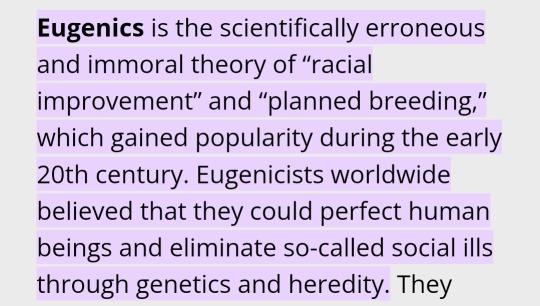
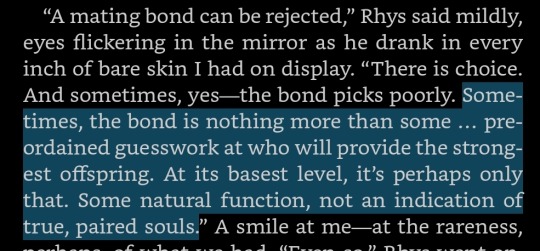
the Cauldron "pairing mates" has allusions to being a breeding program of some kind of supernatural predestined idiocy. Sam + Melissa on Tiktok have some pretty great videos on it
However, while they think that SJM is providing commentary on the matter, I do have a different view, not that I really disagree with what they're saying
SJM has a track record of using disabilities as an aesthetic for her characters. It's often a point of suffering and/or there ends up being a magical fix (yay fantasy eugenics providing miracle cures!!! /sarcasm)
Chaol, severely injured with a spinal cord injury that left him paralyzed goes to the super special healing place to have the world's bestest healers where the magical healing trope + black girl magic collide. He spends the whole book, a duration of only six months, regaining the ability to walk, with a cane most days. Chaol spends a large part of the book feeling sorry for himself and immasculting himself. Yerene, a professional trained healer who helps him with PT snaps at him in frustration to "just get up" when he's being difficult with her Note: some of these detailed may be incorrectly remembered + I never finished the book bec I can't stand him
Lucien: he gets his eye ripped out and is literally blinded but now he has a magical eye that is even better and can sense magic and spells and all that good shit
Rhys: chronic pain; never addressed
Azriel: scarred hands and wings, but so far we've seen no real struggle or accommodation of any kind or even a real discussion on how he had to learn how to fly at an older age due to his captivity and scarred wings
Cassian: his wings were beyond shredded but between books they got fixed up right as rain. it would have been fantastic rep for this decorated veteran and leader to be disabled, esp for a culture of warriors where flying is so crucial + where thr women are also forceably mutilated and can't fly either
speaking of the illyrian women
the Illyrian Women: not being able to fly and use their limbs is a disability. We have seen zero repercussions of Emeries father (and brother(?)) for disabling and mutilating his daughter
the mental health crisis of NESTA for ONE. in both the Fandom and in the series the grating toxic positivity and lack of patience and understanding and support and willingness to meet her halfway enraged me holy shit. The tone policing, the lack of autonomy, the unaddressed childhood trauma that has made Nesta the core of who she was. it was vile and disgusting
Aelin: quite frankly should have difficulty moving as fluidly as she does. she was whipped to ribbons and beaten bloody. Her back should be full of chronic pain and difficulty
Elide: as far as I'm aware Elide isn't too bad and she's incredibly intelligent and resourceful but it's been a hot minute since I've read the series. I do remember when they talked about it at the end about possibilities to heal her ankle (they couldn't)
I haven't read CC yet but I heard that LIMBS CAN GROW BACK???? sure let's just completely erase and magically fix imputations I guess?
I find it a lit harder to forgive "accidental eugenics" when her disabled characters disabilities are either made into Aesthetics, not properly addressed, or just healed all together
and when you pair magical eugenics + aesthetics:
You get Rhysand, the most powerful high lord of ever that you just have to keep being told is the most powerful high lord ever due to his parents being mates that his father whisked away from moments before she became mutilated like all the other Illyrian Women at 18 years old to a 900 year old man
you get his entire IC who is made of The Night Courts super special powerful clique who now happen to be the most powerful illyrian EVERRRR (Cassian + Azriel), Amren who was some trapped angel of death or something and Mor who is just so super powerful a mountain quaked or something when she was born
the entire IC is a concentrated powerhouse who also uses a specific mindset of "might is right"-
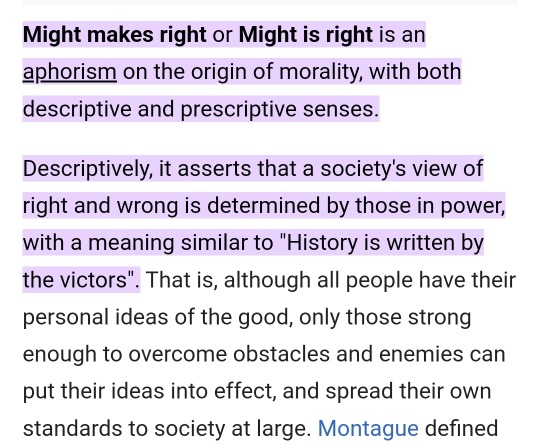
-and have forced others hands across the entire series or just outright lied and stole. also trespassing and routinely breaking laws but hey
Rowan, Aelin, Aedion, Dorian, Manon are all ToG Powerhouses. Rowan is described as the "most powerful full blooded fae male alive". there's an implication that human blood "weakens" fae traits and magical abilities [this is rather common in a lot of fantasy books]
every single character in this series is seen as some sort of extraordinary person with some sort of extraordinary power or ability aside from maybe a few. Hell Chaol, the only fully human character with no powers is the "Captian of the Guard" which he got bec he's a nepo baby from being Dorians friend. He gets disabled and they immediately go to get him fixed
tagging: @feynessupremacy @bookishfeylin @andramoreaux
I thought yall would appreciate
#prev. wolfgeneralashryver#sjm critical#acotar#a court of thorns and roses#throne of glass#tog#ableism#eugenics in acotar#eugenics in tog#eugenics#my posts get good traction yall cowards better interact with these posts. i see yall scrolling whenever i talk about this
162 notes
·
View notes
Text
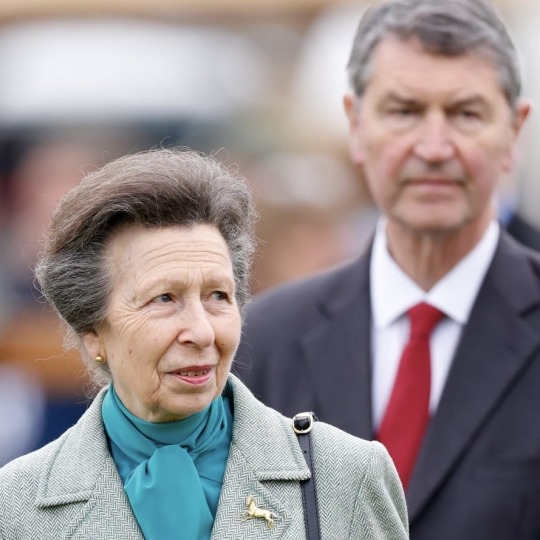
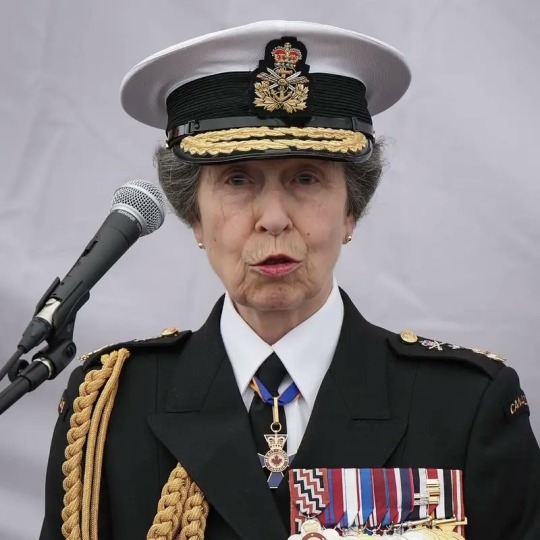
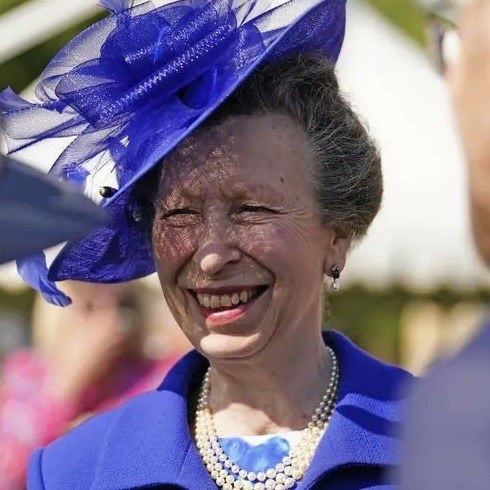


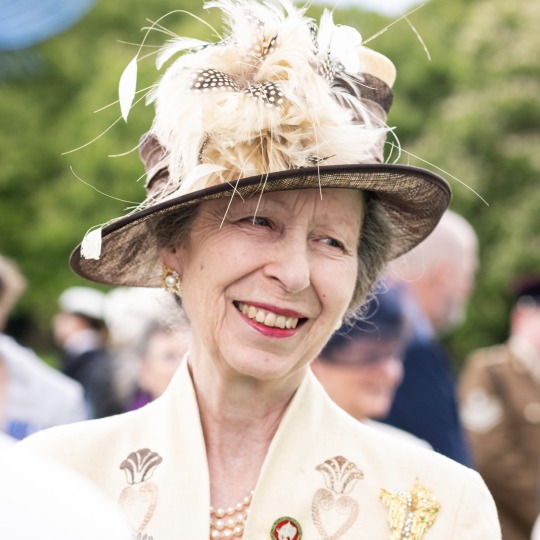

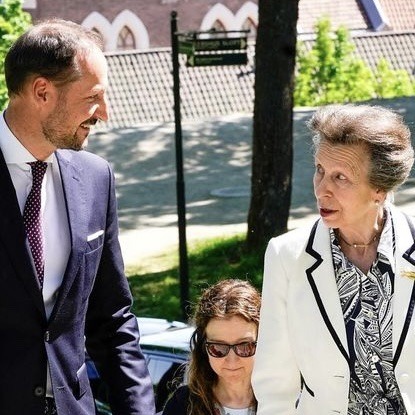
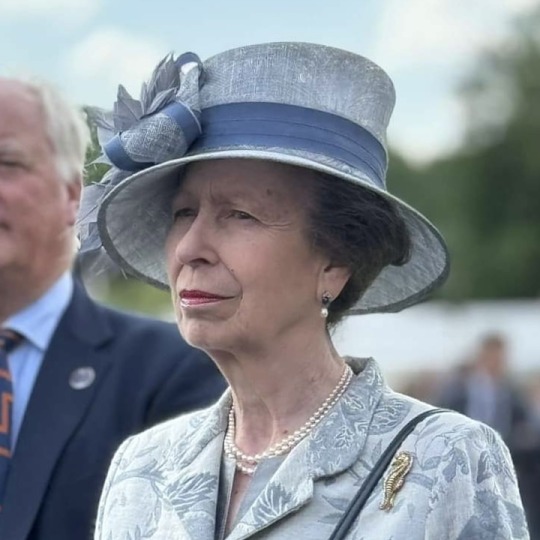
The Princess Royal’s Official Engagements in May 2024
01/05 On behalf of The King, held an Investiture at Buckingham Palace. 🎖️
As President of the City and Guilds of London Institute, attended The Princess Royal Training Awards Alumni Skills Summit at Guildhall. 🏆
With Sir Tim As Patron of the Whitley Fund for Nature, attended the Annual Whitley Awards Ceremony at the Royal Geographical Society. 🦋
02/05 With Sir Tim Named a Great Western Railway Intercity Express Train ‘HRH The Princess Royal’ at Paddington Railway Station. 🚉
Unofficial With Sir Tim Attended day two of the Royal Windsor Horse Show. 🐎
03/05 With Sir Tim Departed the UK from Stansted Airport for Canada and arrived at Vancouver International Airport
HRH, as Commodore-in-Chief of the Royal Canadian Navy (Pacific Fleet), with Sir Tim, carried out engagements in Vancouver;
Attended the Commissioning Ceremony for HMCS MAX BERNAYS at North Vancouver Burrard Drydock, before attending a Reception onboard. ⛴️ 🇨🇦
Attended a Dinner onboard HMCS MAX BERNAYS at sea. 🍽️
04/05 HRH, as Commodore-in-Chief of the Royal Canadian Navy (Pacific Fleet), with Sir Tim, carried out engagements in Victoria;
Toured HMCS Max Bernays at sea. 🌊
Visited Esquimalt Military Family Resource Centre at the Canadian Forces Base Esquimalt. 👪🪖
As President of the Commonwealth War Graves Commission, visited God’s Acre Cemetery and laid a wreath at the Memorial. 🌹
Visited the Maritime Museum of British Columbia Archive. 📜⚓️
Her Royal Highness afterwards visited Fed Urban Agriculture Society Urban Farm, 395 Harbour Road. 🌾
Attended a Reception given by the Lieutenant Governor of British Columbia (the Hon Janet Austin) at Government House. 🥂
Attended a Dinner given by the Lieutenant Governor of British Columbia at Government House. 🍽️
05/05 HRH, as Commodore-in-Chief of the Royal Canadian Navy (Pacific Fleet), with Sir Tim, carried out engagements in Victoria;
Visited Government House Gardens. 🪴⛲️
Attended the Battle of the Atlantic Memorial Parade at the Parliament Building and laid a wreath at the Cenotaph before taking the salute at the march past of Canadian Armed Forces Veterans, Serving Personnel and Cadets. 🫡
Attended a Royal Victoria Yacht Club Youth Dinghy Regatta. 🛥️
As Patron of the Canadian Therapeutic Riding Association, visited Victoria Therapeutic Riding Association. 🐎
Departed Vancouver International Airport for the United Kingdom. 🇨🇦✈️🇬🇧
06/05 Arrived at Heathrow Airport from Canada 🇨🇦✈️🇬🇧
08/05 Hosted a garden party at Buckingham Palace alongside The King and Queen, The Duke and Duchess of Edinburgh and The Duke and Duchess of Gloucester. 🍃☀️🪴
As Patron of the Woolf Institute, attended a Reception, followed by a Dinner, to launch the Randeree End of Life Programme. 🥂🍽️
09/05 As Patron of the Royal Navy and Royal Marines Charity, visited the Headquarters at HMS Excellent in Portsmouth. ⚓️
As Patron of the Women’s Royal Naval Service Benevolent Trust, attended the Annual Presentation and Reception at the National Museum of the Royal Navy. 🏛️
As Patron of the Association of Wrens, opened the new Headquarters Building at Lanyard House, HM Naval Base. 🫡
With Sir Tim As Patron of the National Museum of the Royal Navy, visited the HMS Victory Conservation Project at HM Naval Base ⚓️
With Sir Tim As Patron of the National Museum of the Royal Navy, attended the HMS Victory Conservation Project Dinner onboard HMS Victory at HM Naval Base. ⚓️🍽️
10/05 As Patron of Catch22, visited Greater Manchester Victims’ Services at Greater Manchester Police Headquarters. 👮
Visited the East Manchester Community Boat Project at Portland Basin Museum Marina in Ashton-Under-Lyne to mark its 30th Anniversary. 🛥️🎂
11/05 unofficial With Sir Tim Went to Badminton Horse Trials to cheer on Zara Tindall in her Cross Country stage of the three day event. 🏇🏼
13/05 Visited Stonehaven Open Air Swimming Pool to mark its 90th Anniversary. 🏊♀️🍾🏴
As Admiral of the Sea Cadet Corps and Marine Society and Sea Cadets, opened Stonehaven and District New Headquarters. ⚓️🫡 🏴
14/05 With Sir Tim As Patron of the United Kingdom Sailing Academy held a Founders’ Club Luncheon at St James’s Palace. ⛵️
As Chancellor of the University of London, attended the King’s Centre for Military Health Research Conference. 👩⚕️
With Sir Tim As Patron of the Wellington Trust, attended a Dinner onboard HMS WELLINGTON (mto mark the Ship’s Ninetieth Anniversary. ⚓️🥂
15/05 As Court Member of the Fishmongers’ Company, visited Glenarm Organic Salmon Fish Farm, off Glenarm Harbour in Ballymena. 🍣🚤
As Court Member of the Fishmongers’ Company, attended a Luncheon at Glenarm Castle. 🐟🍽️🏰
16/05 As Royal Patron of the National Coastwatch Institution, visited Bembridge Station, followed by a Reception at Brading Haven Yacht Club in Ryde, Isle of Wight. 🔍🌊
As President, Royal Yachting Association, opened the Sea View Yacht Club's Training Centre in Seaview, Isle of Wight. 🛥️
17/05 With Sir Tim Hosted the annual Not Forgotten Association garden party at Buckingham Palace. 🫖🍰☀️
20/05 unofficial Departed from RAF Brize Norton for Norway and landed at Oslo Gardermoen Airport. 🇬🇧✈️🇳🇴
21/05 As Patron of the Anglo-Norwegian Resistance Commemoration Project, visited the Norwegian Industrial Workers Museum in Vemork, Norway. 🔨⚙️🇳🇴
As Patron of the Anglo-Norwegian Resistance Commemoration Project, received a briefing on the sinking of DF Hydro at Mael Station in Telemark, Norway. 🏭🇳🇴
Attended a Reception given by His Majesty’s Ambassador to the Kingdom of Norway at the Residence in Oslo. 🥂🇳🇴🇬🇧
22/05 As President of the Commonwealth War Graves Commission, visited Vestre Gravlund Cemetery and laid a wreath on the memorial. 🪦
As Patron of the Anglo-Norwegian Resistance Commemoration Project, visited the Linge Club and attended a Reception at Akershus Fortress, Oslo. 🇳🇴🇬🇧
As Patron of the Anglo-Norwegian Resistance Commemoration Project, visited the Norwegian Shipowners’ Mutual War Risks Insurance Association. 🪖🇳🇴
As Patron of the Anglo-Norwegian Resistance Commemoration Project, with The Crown Prince of Norway, visited the Norwegian Resistance Museum, Akershus Fortress. 🏰 🇳🇴
unofficial Departed from Oslo Gardermoen Airport and landed at RAF Brize Norton . 🇬🇧✈️🇳🇴
23/05 As Patron of the Hornet Services Sailing Club, visited the club for their 60th anniversary. ⛵️🎂
Opened the Army Sailing Association Offshore Centre in Gosport. ⛵️
With Sir Tim & Duke of Kent Held a Garden Party at Buckingham Palace to celebrate the Royal National Lifeboat Institution's 200th anniversary. 🛟☕️
With Sir Tim Visited the Royal Horticultural Society Chelsea Flower Show at the Royal Hospital Chelsea. 🌸🌺🌼💐
24/05 Opened the Admiral Lord Cochrane Room at the Royal United Services Institute in Whitehall, London. 🔐
Sometime in May unofficial Sir Tim, as Chair of Trustees, attended the Science Museum Groups annual dinner
Total official engagements for Anne in May: 53
2024 total so far: 224
Total official engagements accompanied by Tim in May: 23
2024 total so far: 55
FYI - due to certain royal family members being off ill/in recovery I won't be posting everyone's engagement counts out of respect, I am continuing to count them and release the totals at the end of the year.
#a very busy month!!!#i loved her visits to canada and norway!!!#very excited for june!#aimees unofficial engagement count 2024#may 2024#princess anne#princess royal#tim laurence#timothy laurence
41 notes
·
View notes
Text
The Biden-Harris Administration Advances Equity and Opportunity for Black Americans

Growing Economic Opportunity for Black Families and Communities
Through the President’s legislative victories, including the American Rescue Plan (ARP), the Bipartisan Infrastructure Law (BIL), the CHIPS and Science Act, and the Inflation Reduction Act (IRA)—as well as the President’s historic executive orders on racial equity—the Biden-Harris Administration is ensuring that federal investments through the President’s landmark Investing in America agenda are equitably flowing to communities to address longstanding economic inequities that impact people’s economic security, health, and safety. And this vision is already delivering results. The Biden-Harris Administration has:
Powered a historic economic recovery that created 2.6 million jobs for Black workers—and achieved both the lowest Black unemployment rate on record and the lowest gap between Black and White unemployment on record.
Helped Black working families build wealth. Black wealth is up by 60% relative to pre-pandemic—the largest increase on record.
Cut in half the number of Black children living in poverty in 2021 through ARP’s Child Tax Credit expansion. This expansion provided breathing room to the families of over 9 million Black children.
Began reversing decades of infrastructure disinvestment, including with $4 billion to reconnect communities that were previously cut off from economic opportunities by building needed transportation infrastructure in underserved communities, including Black communities.
Connected an estimated 5.5 million Black households to affordable high-speed internet through the Affordable Connectivity Program, closing the digital divide for millions of Black families.

Helping Black-Owned Businesses Grow and Thrive
Since the President entered office, a record 16 million new business applications have been filed, and the share of Black households owning a business has more than doubled. Building on this momentum, the Biden-Harris Administration has:
Achieved the fastest creation rate of Black-owned businesses in more than 30 years—and more than doubled the share of Black business owners from 2019 to 2022.
Improved the Small Business Administration’s (SBA) flagship loan guarantee programs to expand the availability of capital to underserved communities. Since 2020, the number and dollar value of SBA-backed loans to Black-owned businesses have more than doubled.
Launched a whole-of-government effort to expand access to federal contracts for small businesses, awarding a record $69.9 billion to small disadvantaged businesses in 2022.
Through Treasury’s State Small Business Credit Initiative, invested $10 billion to expand access to capital and invest in early-stage businesses in all 50 states—including $2.5 billion in funding and incentive allocations dedicated to support the provision of capital to underserved businesses with $1 billion of these funds to be awarded to the jurisdictions that are most successful in reaching underserved businesses.
Helped more than 37,000 farmers and ranchers who were in financial distress, including Black farmers and ranchers, stay on their farms and keep farming, thanks to resources provided through IRA. The IRA allocated $3.1 billion for the Department of Agriculture (USDA) to provide relief for distressed borrowers with at-risk agricultural operations with outstanding direct or guaranteed Farm Service Agency loans. USDA has provided over $2 billion and counting in timely assistance.
Supported small and disadvantaged businesses through CHIPS Act funding by requiring funding applicants to develop a workforce plan to create equitable pathways for economically disadvantaged individuals in their region, as well as a plan to support procurement from small, minority-owned, veteran-owned, and women-owned businesses.
Created the $27 billion Greenhouse Gas Reduction Fund that will invest in clean energy projects in low-income and disadvantaged communities.

Increasing Access to Housing and Rooting Out Discrimination in the Housing Market for Black Communities
To increase access to housing and root out discrimination in the housing market, including for Black families and communities, the Biden-Harris Administration has:
Set up the first-ever national infrastructure to stop evictions, scaling up the ARP-funded Emergency Rental Assistance program in over 400 communities across the country, helping 8 million renters and their families stay in their homes. Over 40% of all renters helped are Black—and this support prevented millions of evictions, with the largest effects seen in majority-Black neighborhoods.
Published a proposed “Affirmatively Furthering Fair Housing” rule through the Department of Housing and Urban Development (HUD), which will help overcome patterns of segregation and hold states, localities, and public housing agencies that receive federal funds accountable for ensuring that underserved communities have equitable access to affordable housing opportunities.
Created the Interagency Task Force on Property Appraisal and Valuation Equity, or PAVE, a first-of-its-kind interagency effort to root out bias in the home appraisal process, which is taking sweeping action to advance equity and remove racial and ethnic bias in home valuations, including cracking down on algorithmic bias and empowering consumers to take action against misvaluation.
Taken additional steps through HUD to support wealth-generation activities for prospective and current homeowners by expanding access to credit by incorporating a borrower’s positive rental payment history into the mortgage underwriting process. HUD estimates this policy change will enable an additional 5,000 borrowers per year to qualify for an FHA-insured loan.
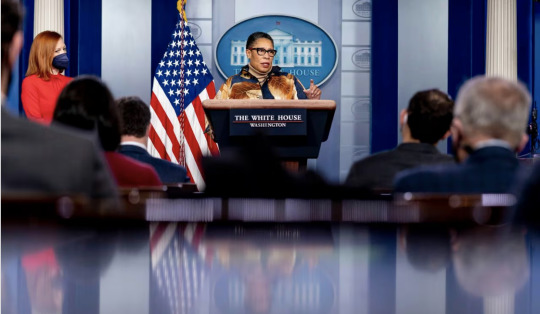
Ensuring Equitable Educational Opportunity for Black Students
To expand educational opportunity for the Black community in early childhood and beyond, the Biden-Harris Administration has:
Approved more than $136 billion in student loan debt cancellation for 3.7 million Americans through various actions and launched a new student loan repayment plan—the Saving on a Valuable Education (SAVE) plan—to help many students and families cut in half their total lifetime payments per dollar borrowed.
Championed the largest increase to Pell Grants in the last decade—a combined increase of $900 to the maximum award over the past two years, affecting the over 60% of Black undergraduates who rely on Pell grants.
Fixed the Public Service Loan Forgiveness (PSLF) program, so all qualified borrowers get the debt relief to which they are entitled. More than 790,000 public servants have received more than $56 billion in loan forgiveness since October 2021. Prior to these fixes, only 7,000 people had ever received forgiveness through PSLF.
Delivered a historic investment of over $7 billion to support HBCUs.
Reestablished the White House Initiative on Advancing Educational Equity, Excellence, and Economic Opportunity for Historically Black Colleges and Universities and the White House Initiative on Advancing Educational Equity, Excellence, and Economic Opportunity for Black Americans.
Through ARP, secured $130 billion—the largest investment in public education in history—to help students get back to school, recover academically in the wake of the COVID-19 pandemic, and address student mental health.
Secured a 30% increase in child care assistance funding last year. Black families comprise 38% of families benefiting from federal child care assistance. Additionally, the President secured an additional $1 billion for Head Start, a program where more than 28% of children and pregnant women who benefit identify as Black.

Improving Health Outcomes for Black Families and Communities
To improve health outcomes for the Black community, the Biden-Harris Administration has:
Increased Black enrollment in health care coverage through the Affordable Care Act by 49%—or by around 400,000—from 2020 to 2022, helping more Black families gain health insurance than ever before.
Through IRA, locked in lower monthly premiums for health insurance, capped the cost of insulin at $35 per covered insulin product for Medicare beneficiaries, and helped further close the gap in access to medication by improving prescription drug coverage and lowering drug costs in Medicare.
Through ARP, expanded postpartum coverage from 60 days to 12 months in 43 states and Washington, D.C., covering 700,000 more women in the year after childbirth. Medicaid covers approximately 65% of births for Black mothers, and this investment is a critical step to address maternal health disparities.
Financed projects that will replace hundreds of thousands of lead pipes, helping protect against lead poisoning that disproportionately affects Black communities.
Provided 264 grants with $1 billion in Bipartisan Safer Communities Act funds to more than 40 states to increase the supply of school-based mental health professionals in communities with high rates of poverty.

Launched An Unprecedented Whole-Of-Government Equity Agenda to Ensure the Promise of America for All Communities, including Black Communities
President Biden believes that advancing equity, civil rights, racial justice, and equal opportunity is the responsibility of the whole of our government, which will require sustained leadership and partnership with all communities. To make the promise of America real for every American, including for the Black Community, the President has:
Signed two Executive Orders directing the Federal Government to advance an ambitious whole-of-government equity agenda that matches the scale of the challenges we face as a country and the opportunities we have to build a more perfect union.
Nominated the first Black woman to serve on the Supreme Court and more Black women to federal circuit courts than every President combined.
Countered hateful attempts to rewrite history including: the signing of the Emmett Till Antilynching Act; establishing Juneteenth as a national holiday; and designating the Emmett Till and Mamie Till-Mobley National Monument in Mississippi and Illinois. The Department of the Interior has invested more than $295 million in infrastructure funding and historic preservation grants to protect and restore places significant to Black history.
Created the Justice40 Initiative, which is delivering 40% of the overall benefits of certain Federal investments in clean energy, affordable and sustainable housing, clean water, and other programs to disadvantaged communities that are marginalized by underinvestment and overburdened by pollution as part of the most ambitious climate, conservation, and environmental justice agenda in history.

Protecting the Sacred Right to Vote for Black Families and Communities
Since their first days in office, President Biden and Vice President Harris have prioritized strengthening our democracy and protecting the sacred right to vote in free, fair, and secure elections. To do so, the President has:
Signed an Executive Order to leverage the resources of the Federal Government to provide nonpartisan information about the election process and increase access to voter registration. Agencies across the Federal Government are taking action to respond to the President’s call for an all-of-government effort to enhance the ability of all eligible Americans to participate in our democracy.
Repeatedly and forcefully called on Congress to pass essential legislation, including the John R. Lewis Voting Rights Advancement Act and the Freedom to Vote Act, including calling for an exception to the filibuster to pass voting rights legislation.
Increased funding for the Department of Justice’s Civil Rights Division, which has more than doubled the number of voting rights enforcement attorneys. The Justice Department also created the Election Threats Task Force to assess allegations and reports of threats against election workers, and investigate and prosecute these matters where appropriate.
Signed into law the bipartisan Electoral Reform Count Act, which establishes clear guidelines for our system of certifying and counting electoral votes for President and Vice President, to preserve the will of the people and to protect against the type of attempts to overturn our elections that led to the January 6 insurrection.
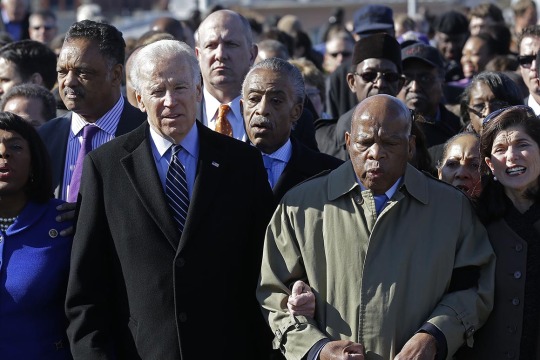
Addressing the Crisis of Gun Violence in Black Communities
Gun violence has become the leading cause of death for all youth and Black men in America, as well as the second leading cause of death for Black women. To address this national crisis, the President has:
Launched the first-ever White House Office of Gun Violence Prevention, and taken more executive action on gun violence than any President in history, including investments in violence reduction strategies that address the root causes of gun violence and address emerging threats like ghost guns. In 2022, the Administration’s investments in evidence-based, lifesaving programs combined with aggressive action to stop the flow of illegal guns and hold shooters accountable yielded a 12.4% reduction in homicides across the United States.
Signed into the law the Bipartisan Safer Communities Act, the most significant gun violence reduction legislation enacted in nearly 30 years, including investments in violence reduction strategies and historic policy changes to enhance background checks for individuals under age 21, narrow the dating partner loophole in the gun background check system, and provide law enforcement with tools to crack down on gun trafficking.
Secured the first-ever dedicated federal funding stream for community violence intervention programs, which have been shown to reduce violence by as much as 60%. These programs are effective because they leverage trusted messengers who work directly with individuals most likely to commit gun violence, intervene in conflicts, and connect people to social, health and wellness, and economic services to reduce the likelihood of violence as an answer to conflict.

Enhancing Public Trust and Strengthening Public Safety for Black Communities
Our criminal justice system must protect the public and ensure fair and impartial justice for all. These are mutually reinforcing goals. To enhance equal justice and public safety for all communities, including the Black community, the President has:
Signed a historic Executive Order to put federal policing on the path to becoming the gold standard of effectiveness and accountability by requiring federal law enforcement agencies to ban chokeholds; restrict no-knock warrants; mandate the use of body-worn cameras; implement stronger use-of-force policies; provide de-escalation training; submit use-of-force data; submit officer misconduct records into a new national accountability database; and restrict the sale or transfer of military equipment to local law enforcement agencies, among other things.
Taken steps to right the wrongs stemming from our Nation’s failed approach to marijuana by directing the Departments of Health and Human Services and Justice to expeditiously review how marijuana is scheduled under federal law and in October 2022 issued categorical pardons of prior federal and D.C. offenses of simple possession of marijuana and in December 2023 pardoned additional offenses of simple possession and use of marijuana under federal and D.C. law. While white, Black, and brown people use marijuana at similar rates, Black and brown people have been arrested, prosecuted, and convicted at disproportionately higher rates.
Announced over 100 concrete policy actions as part of a White House evidence-informed, multi-year Alternatives, Rehabilitation, and Reentry Strategic Plan to safely reduce unnecessary criminal justice system interactions so police officers can focus on fighting crime; supporting rehabilitation during incarceration; and facilitating successful reentry.
FACT SHEET
#Joe Biden#Thanks Biden#Black History Month#black americans#african american#kamala harris#politics#US Politics#Economy#student loan debt#marijuana#criminal justice#gun violence#voting rights#from the White House#long post#because a lot has happened
75 notes
·
View notes
Note
Hello! I came across a random article on the internet that said that young people woke up after the great war and sought to form political movements. Could you tell me if this is true and/or give me resources to read?
This is true!
As far as I am aware, young men came back to find that the world had moved on while they were away - more women occupied their jobs, or they had been filled, and most of the lower class was less than willing to return to their jobs for low wages and unsafe work. Inflation was high, jobs were few and far between, and the cost of food and housing was at an all-time high. Many were angry at the government that had sent them to fight in an imperial war (especially men who were not entirely British), and thought they should be doing more to help veterans.
The war led directly to the rise in workers' unions, the spread of new political parties, and the rise of extremists such as anti-monarchists, socialists, communists, ultranationalists and fascists. The Russian Revolution in 1917 also showed the world that even a 300-year-old system was not permanent and that they could advocate for change. In 1919, Canada saw a huge workers' strike in Winnipeg that brought about unions and an entirely new political party, the New Democratic Party. The working class was fed up with what they had given up and got in return. Soldiers themselves later published accounts of how their service meant nothing to their governments and expressed their distaste for the war.
Here are some readings about it. This is one of my favourite portions of study regarding the war, how soldiers were forced back into society and how that changed what the world looked like.
The Winnipeg General Strike
Generals Die in Bed by Charles Harrison
Age Of Extremes - 1914-1991
Peace and Bread in Time of War
21 notes
·
View notes
Text
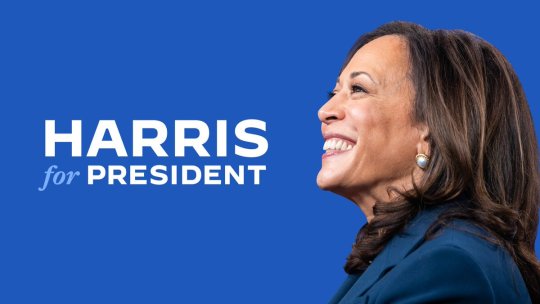
Kamala Harris accomplishments as VP:
Cast tie-breaking vote for the American Rescue Plan of 2021.
Passed the American Rescue Plan, resulting in $1.9 trillion in economic stimulus.
Extended the Child Tax Credit through the American Rescue Plan.
Extended unemployment benefits through the American Rescue Plan.
Passed the $1 trillion bipartisan infrastructure bill.
Secured funding for electric school buses in the infrastructure bill.
Secured funding to combat wildfires and droughts in the infrastructure bill.
Secured funding for replacing lead water service lines.
Engaged with lawmakers at least 150 times for infrastructure investment.
Led diplomatic mission to Guatemala and Mexico to address migration issues.
Launched the "Central America Forward" initiative.
Secured $4.2 billion in private sector commitments for Central America.
Visited Paris to strengthen US-France relations.
Visited Singapore and Vietnam to bolster economic and strategic ties.
Visited Poland to support NATO allies during the Russia-Ukraine conflict.
Visited Romania to support NATO allies during the Russia-Ukraine conflict.
Launched the "Fight for Reproductive Freedoms" tour.
Visited a Planned Parenthood clinic in Minnesota.
Passed the COVID-19 Hate Crimes Act.
Promoted racial equity in pandemic response through specific initiatives.
Chaired the National Space Council.
Visited NASA's Goddard Space Flight Center to promote space policies.
Passed the Freedom to Vote Act in the House.
Passed the John Lewis Voting Rights Advancement Act in the House.
Built coalitions for voting rights protections.
Supported the Affordable Care Act through specific policy measures.
Expanded healthcare coverage through policy initiatives.
Passed initiatives for debt-free college education.
Hosted a STEM event for women and girls at the White House.
Championed criminal justice reform through specific legislation.
Secured passage of the bipartisan assault weapons ban.
Expanded background checks for gun purchases through legislation.
Increased the minimum wage through specific policy actions.
Implemented economic justice policies.
Expanded healthcare coverage through policy initiatives.
Secured funding for affordable housing.
Secured funding for affordable education initiatives.
Launched the "Justice is Coming Home" campaign for veterans' mental health.
Proposed legislation for easier legal actions against financial institutions.
Strengthened the Consumer Financial Protection Bureau.
Secured investment in early childhood education.
Launched maternal health initiatives.
Launched the "Call to Action to Reduce Maternal Mortality and Morbidity".
Made Black maternal health a national priority through policy actions.
Increased diversity in government appointments.
Passed legislation for renewable energy production.
Secured funding for combating climate change.
Passed infrastructure development initiatives.
Secured transportation funding through the infrastructure bill.
Developed a plan to combat climate change.
Reduced illegal immigration through policy actions.
Equitable vaccine distribution through specific policy measures.
Supported small businesses through pandemic recovery funds.
Secured educational resources during the pandemic.
Promoted international cooperation on climate initiatives.
Secured international agreements on climate change.
Passed economic policies benefiting the middle class.
Criticized policies benefiting the wealthy at the expense of the working class.
Promoted racial equity in healthcare through specific actions.
Promoted racial equity in economic policies.
Reduced racial disparities in education through specific initiatives.
Increased mental health resources for underserved communities.
Secured funding for affordable childcare.
Secured federal funding for community colleges.
Increased funding for HBCUs.
Increased vaccinations during the COVID-19 pandemic.
Secured policies for pandemic preparedness.
Ensured equitable vaccine distribution through policy actions.
Secured international cooperation for COVID-19 responses.
Reduced economic disparities exacerbated by the pandemic.
Passed digital equity initiatives for broadband access.
Expanded rural broadband through specific policies.
Secured cybersecurity policies through legislation.
Protected election integrity through specific actions.
Secured fair and secure elections through policy measures.
Strengthened international alliances through diplomacy.
Supported the Paris Climate Agreement through policy actions.
Led U.S. climate negotiations through international initiatives.
Passed initiatives for clean energy jobs.
Secured policies for energy efficiency.
Reduced carbon emissions through specific legislation.
Secured international climate finance.
Promoted public health policies through specific initiatives.
Passed reproductive health services policies.
Supported LGBTQ+ rights through specific actions.
Secured initiatives to reduce homelessness.
Increased veterans' benefits through legislation.
Secured affordable healthcare for veterans.
Passed policies to support military families.
Secured initiatives for veteran employment.
Increased mental health resources for veterans.
Passed disability rights legislation.
Secured policies for accessible infrastructure.
Increased funding for workforce development.
Implemented economic mobility policies.
Secured consumer protection policies through legislation.
Engaged in community outreach through public events.
Organized public engagement efforts.
Participated in over 720 official events, averaging three per day since taking office.
Supported efforts to modernize public health data systems.
18 notes
·
View notes
Text
Books by Black Authors for Black History Month!
I wanted to share a list of books I love and books that I'm looking forward to reading that are by Black authors in acknowledgement of Black History Month. I feel like a lot of my fellow readers (especially my fellow white readers) always go into a, kind of, reading slump in February and I don't know if that's because the month of January is just ten years long that February feels like a hangover or if it's because they feel the desire to read books by Black authors but then the majority of what is marketed is usually books that are steeped in trauma or nonfiction books. And, like, yeah, nonfiction books are so important but when they're the only kind of book marketed it can make finding the other kinds of books that much harder but I believe that if you read the fun books and the happy books and the fantasy books it will make you want to seek out the nonfiction resources. I'm blabbering so long story short, I thought I would make a little list to do some of the legwork for my fellow readers to find stories that they can check out.
I used GoodReads links (and one StoryGraph) link, you can choose who to purchase from yourself (although I will suggest BookShop.org as your purchase does go towards indie bookstores, I also really like the Libby App which is just your library and it works with your Kindle/Nook/Kobo/iPad). All authors that I have included in this are American or have strong ties to the USA which is why I did not include authors such as Bolu Babalola, Talia Hibbert, Chimamanda Ngozi Adichie but I do highly recommend checking them out if you haven't because they do write gorgeously.
Kennedy Ryan has an extensive backlog and beautiful writing, beautiful prose. She had a book called Before I Let Go (Skyland #1) come out in November 2022, it is a second chance romance between a married couple. It has been on my shelf forever, the cover is beautiful and I've heard nothing but truthfully incredible things. I have listened to snippets of the audiobook but keep putting off getting the actual audiobook because Kennedy is the kind of author I want to read the grammar, syntax, wording of everything from. This book actually got optioned to be adapted into a television show and there's a second Skyland book coming out in March called This Could Be Us that has the ARC readers going wild.
Jasmine Guillory is one of my favorite authors. She is a Bay Area native and has a law degree from Stanford. Not only do I think that she writes beautifully but I cannot even describe to you the way that I kick my little feet and twirl my hair. I feel like my favorite of hers changes. Up until a few weeks ago, I would've told you that Olivia Monroe in Party of Two was my favorite Jasmine girly but I listened to Royal Holiday to kick off my reading for January and Vivian Forest is such a beautiful character. She's a 56 year old Black woman who is a veteran social worker who thinks it's too late for her on several fronts and then she gets swept off her feet while on a vacation with her daughter AND THE ROYAL FAMILY. What?! I also think that Jasmine writes, like.... character appropriate sex scenes if that makes sense. Like, Vivian's scenes are more reserved than Olivia's were, Vivian's more closed door than Olivia's were. She also has a Beauty and the Beast inspired book called By The Book and I kept texting my friend the entire way through and then made her buy a copy so she could text me right back with all her thoughts. Amazing. I love her.
You want cozy fantasy romance with monsters and happy Black women being loved by their hot monster lovers? Kimberly Lemming has GOT YOU COVERED.
Plugging my new author friend P.J. Leigh and her book Olawu. She actually responded to my request for some indie author recs on Threads and sent me a copy of Olawu that will be here on Friday and I'm so excited. She describes it as: "Set in precolonial East Africa with romance, action, sisterhood, found family, and a feisty but flawed female lead." I cannot wait to dig into this one.
Another author who messaged me is indie author Quiana Glide. Her bio is that she is an unabashed fangirl and her books feature pregnancy trope, cosplay, professional wrestlers and cafe owners solving murders. Her books sound fucking great and they are available on Kindle Unlimited for my KU girlies (gender neutral).
Celestine Martin messaged me as well and she writes paranormal romance with Black witches, emo mermen and fae princes. I tripped over myself running to my Libby app to place a hold on the audiobook.
25 to Love! by Joye Johnson is another one available on Kindle Unlimited for my KU girlies (gender neutral). The synopsis is: "TV's hottest dating show is '25 to Love!'. To nab a guy from her past, Lola signs on as the token girl of color. All's fair in love and ratings--can a week on TV get Lola closer to the one that got away?" You know what I love? Second chance romances, besties, that's right.
Splinter by Jasper Hyde was another I was recommended. Jasper writes paranormal, LGBTQ+ books. Jasper Hyde is a pen name for Georgina Kiersten who also goes by Rian Fox. The pen name denotes the subgenre that they write. Georgina does go by they/them pronouns and writes plus sized rep and neurodivergent rep too.
Kelly Cain. That's it. That's the tweet. THE EVERHEART BROTHERS SERIES????? If you know anything about me, you know that I have a hearing issue and so I've used audiobooks before but I never really clicked with them or got the hype. Turns out I had boring ass narrators (look I did the audio version of a lot of nonfiction books I had to read about old dead white guys in college so of course I had that feeling). THE EVERHEART BROTHERS AUDIOBOOKS ARE WHAT CHANGED ME. Deanna Anthony, the narrator, is so engaging and I didn't feel like I was listening to an audiobook, I felt like I was sitting across the table at brunch having a gossip session with my bestie. If you read it and you didn't like it, that's fine, but I didn't lie to you and enjoyment of art is subjective but also you're wrong and argue with a wall.
I've been seeing a lot of talk lately about Pride & Protest by Nikki Payne. This is a Pride & Prejudice and one of the reviews says, "If you ever wanted P&P to feel more like watching a swoony, steamy episode of Insecure, this is the book for you."
Currently, I am reading You Made a Fool of Death With Your Beauty by Akwaeke Emezi. It deals with themes of grief and romance and also bisexual representation. Absolutely beautiful prose. Akwaeke is Nigerian and has been in the USA since college. They are non-binary and go by they/them pronouns.
I also cannot end this list without mentioning Memphis by Tara M. Stringfellow. This follows three generations of a southern Black family in the neighborhood of Douglass in Memphis, TN (I was born a couple miles away in Raleigh) . Now, this book does have quite a few trigger warnings that I won't put here but I do encourage you to READ THE TRIGGER WARNINGS before you purchase this book as it does deal with some pretty heavy subject matter.
I'm also going to end this by saying to keep an eye out for anything done by my best friend, the person who I have shared so many amazing, beautiful, life changing experiences with ALL OVER THE WORLD for the last fourteen years: Isana Skeete (Isana does not use pronouns). If you look at the GoodReads account for Isana that I linked, you'll see lists made with recommendations of books with queer POC rep and asexuality representation.
#long post#black authors#book recs#book club#booklr#kennedy ryan#jasmine guillory#kelly cain#kimberly lemming#tara m. stringfellow#akwaeke emezi#nikki payne#georgina kiersten#jasper hyde#pj leigh#joye johnson#celestine martin#romance books#paranormal romance#contemporary romance#i'm posting this now and then will rebagel in the morning
48 notes
·
View notes
Text
Daniel Molloy Hc's
I role-played as Daniel for years a long time ago, and these were some of the hcs I had. I fully admit that a few of these were inspired by Stand By Me. Long post because I'm combining background hc's with general. Might do a part 2! These are book Daniel.
CW: Alcoholism and Homophobia
He was born in Ames, Iowa, but vowed to leave town as soon as he could. He applied to the University of Washington for the hell of it. It was random, but it was also a beautiful state and had a very well-known journalism program.
Daniel's family was lower middle class. They weren't improvished, but the budget was extremely tight.
His father was a WWII veteran with PTSD and a drinking problem. He was never abusive, but he was never pleasant, either. He was a mechanic while his mother worked as a secretary. Daniel picked up a few skill from watching his father work on the family's car.
Played baseball as a child all the way through high school. He was a natural, but it was never something he placed his worth in. However, Armand found out and requested Daniel show off a baseball uniform. Daniel promised he would, and eventually, he did on Halloween. Armand very much so appreciated how his ass looked in them. Armand commented, "An All American boy, I see."
Daniel enjoyed hockey and used to play street hockey with his friends. He wasn't good at it, but he had fun.
If you asked Daniel, he never felt he was athletic. Just lucky. "What? All I did was hit a ball and run around a diamond. Nothing impressive."
Is bisexual. Daniel always knew he was "unusual" and didn't realize his feelings for men were "wrong" until he started to hear rumors of an allegedly gay man in town. Seeing how he was treated, Daniel made sure to stay closeted. He was nearly caught making out with men by his father on two occasions. It was challenging to find men like him, especially in Iowa, but he did manage a fling or two. He mainly dated women. While he was attracted to women, it was what he felt he was "supposed" to do.
Had a high school sweetheart, but broke it off when they graduated as they had utterly diffierent ideas about what they wanted to do with their lives. His parents were furious as they wanted nothing more than the "traditional" pathway of marriage and kids.
This was part of the reason why he chose the University of Washington, as Seattle was known for its underground queer scene.
*Took multiple internships, with one in his senior year in San Francisco, where he fell in love with the city and moved upon graduation. It was a shitty one-room apartment in a shady area, but he had never felt more free.
Very nearly missed the Vietnam draft. His father tried to convince him to join the war, but Daniel refused. At that point, they were hardly speaking to each other, so disappointing his father was no big loss to him.
Wrote Op-Eds about the Vietnam War and interviewed student protestors when attending protests. Daniel felt the war was idiotic and a waste of resources, but he himself did not protest. He merrily interviewed those he did. However, he felt his writings were his contributions to protesting the war
In the 80s, he once wore a crop top to surprise Armand and found out he loved them wearing them. Armand didn't mind the view either but preferred Daniel to wear the clothing he picked out for him.
That did not stop Daniel from wearing short shorts when he wanted to.
One of his favorite dates with Armand was rollerblading because it was ridiculous. Armand had to be mindful of appearing human.

#tw homophobia#tw alcoholism#Daniel molloy#the vampire armand#devil's minion#vampire chronicles#queen of the damned#armand#iwtv#long post
37 notes
·
View notes
Text
Broadway Divas Tournament: Round 1C


Two-time Tony-winning dancer-extraordinaire Bebe Neuwirth (1958) is best known for her winning role as Velma Kelly in Chicago (1996) alongside her beloved Annie Reinking. After playing Velma off-and-on for some years, she then took on Roxie, and later Matron "Mama" Morton. Bebe has also won for Sweet Charity (1986), and is a two-time Emmy winner for, of course, Lilith in Cheers. Other credits include Here Lies Jenny (2004), Fosse (2001), and Cabaret (2024), opening next month. In addition to her beloved stage, Bebe is a devoted cat-lover, and activist. She founded the Dancers' Resource program to provide support for injured and/or aging dancers.
Stalwart theatre veteran Laurie Metcalf (1955) is also a two-time Tony winner and four-time Emmy winner. Her consecutive Tony wins for A Doll's House, Part 2 (2017) and Three Tall Women (2018) places her on an elite list of just six other performers (including fellow Diva Judith Light). She has also appeared in Misery (2015), Hillary and Clinton (2019), and Grey House (2023), an experimental horror play that ultimately flopped. (And I have opinions on that.)
PROPAGANDA AND MEDIA UNDER CUT: ALL POLLS HERE
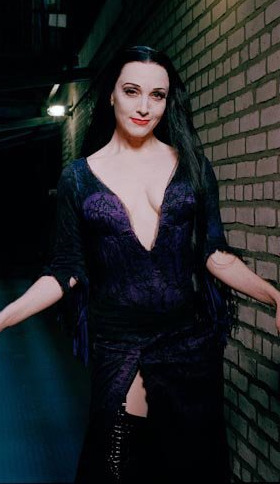


youtube
"Let me be abundantly clear. Bebe Neuwirth is my ultimate Diva. It may be stiff competition, but she wins the bracket of my heart every time. I would follow this woman to the end of the earth and back. I love everything about her from her cats, to her giggle, to her exquisite grey hair. I so admire any woman who chooses to age gracefully and without resentment, and Bebe's really settled into this adorable cozy old cat lady life. Back in the day, it was all stiletto heels and tight little black dresses and yes, that was very sexy. But now she's enjoying the comforts of flat sturdy boots, massive sweaters with cute little cats on them, glasses on chains, and divine grey hair. Gorgeous, yes. Talented, fuck yes. This woman has music in her bones and not even three hip surgeries can steal it away. I love her."
"Oh, Bebe Neuwirth? Love of my life, champion of my soul? Her legs are simply to die for. Not convinced? Search up When Velma Takes the Stand on YouTube and feast your eyes. You’ll be watching clips of her entire Broadway career next, trust me. She is truly a powerhouse of a woman, and one of Bob Fosse’s greatest interpreters." Propaganda submitted by anon "V"


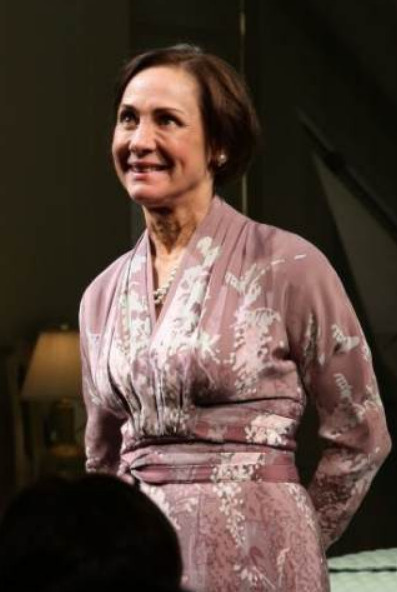
youtube
"The pandemic robbed us of many things, but for our purposes here, the greatest loss to theatre was the revival of Who's Afraid of Virginia Woolf starring Laurie Metcalf. During the dinner scene, so I'm told by the gays on twitter, she came out in a sheer white blouse and black bra, and I am devastated we didn't get her unhinged Martha. She would have done Uta Hagen and Elaine Stritch proud."
Bonus poll in the tags/comments: Tell me who you think wins in a fight? Lilith from Cheers/Frasier, or Jackie from Rosanne. If you're too young to know what I'm talking about, what are you doing here?
#broadwaydivastournament#broadway divas#broadway#theatre#tournament poll#bebe neuwirth#laurie metcalf#round 1c#this poll is designed to hurt everyone old enough to have watched 80s/90s sitcoms#funnily enough both characters were heavily queercoded so i think they should just date each other wouldn't that be fun? (or disastrous)
34 notes
·
View notes
Text
Over the past two years, more than 20 states have expanded access to state jobs through a simple move: assessing or removing bachelor’s degree requirements. With state, local, and federal governments employing 15% of the U.S. workforce, these actions are of enormous consequence, especially for “STARs,” or workers who are skilled through alternative routes. STARs—who have gained their skills through community college, the military, partial college, certification programs, and, most commonly, on-the-job training—represent over half of the nation’s workforce, and currently occupy approximately 2 million state jobs.
Government leaders see removing bachelor’s degree requirements as critical to meeting their hiring needs and public service delivery obligations. And at a time when states are struggling to fill a high number of open roles, removing these requirements can attract a larger pool of talent.
Many states already have laws or policies that forbid discrimination based on educational attainment. But in practice, hiring patterns have favored degrees, and the composition of the state workforce reflects this. While they comprise half of the workforce, STARs fill only 36% of state jobs—representing a gap of 1 million good state jobs for STARs nationwide.1 The explicit commitment to removing degree requirements is a signal to STARs that they are welcome to apply.
Further, these actions are meant to build a state workforce that reflects the community it serves. Historically, government employment has been used to improve economic equity, providing increased economic opportunities for members of historically disadvantaged groups (notably women and Black workers). In recent decades, however, the bias toward credentialing has resulted in the inadvertent exclusion of STARs, with disproportionate consequences. When a bachelor’s degree is required for a position, employers automatically screen out almost 80% of Latino or Hispanic workers and nearly 70% of Black, veteran, and rural workers. Increased STAR hiring will help correct this inequity.
It is still too early to measure the impact of these changes on hiring behavior, as it will take time while hiring numbers slowly accumulate through job turnover and new positions. Yet we can already see signs that the effort is bearing fruit. In the first quarter of this year, more than 20 states made a yearlong commitment to focus on skills-based hiring through the National Governors Association’s Skills in the States Community of Practice. As one of the lead partners, our organization—Opportunity@Work—supports states through peer learning to prepare and make action plans for the organizational changes needed to implement skills-based practices, which will ultimately improve hiring and advancement outcomes for STARs.
We also see changes in state job postings. We analyzed two years of data on jobs that paid over the national median wage and were posted by all the states that took action to remove degree requirements by April 2023.2 Our findings show that in the 12 months prior to these state actions, 51.1% of roles explicitly listed a bachelor’s degree as a requirement. In the 12 months following, that percentage fell to 41.8%—a nearly 10-point shift. The largest shifts occurred in job postings for roles in management, IT, administration, and human resources—all occupations in which STARs have been underrepresented in the public sector compared to the private sector. For example, in state governments, 69% of general and operations managers hold a bachelor’s degree, while only 45% do in the private sector.3
State leaders view these actions as a critical first step. “We are creating opportunities for everyone, not just those with higher education,” said Melissa Walker of the Colorado Department of Personnel and Administration. “We want to draw on all kinds of experience.” Colorado has pragmatically focused on policy implementation and behavior change; in addition to updates to agency rules and regulations, its executive order focused on a transition to skills-based hiring as the norm for Colorado human resources, including funding for the training of hiring managers and development of a skills-based hiring toolkit. The state’s Department of Personnel and Administration is providing training and resources for human resources teams across state agencies, enabling each to make the necessary changes in their processes and procedures. Resources include a new job description template designed to identify skills—a simple tool that promotes skills-first thinking and behavior change at the hiring manager level.
Culture and systems change both take time. Adjusting common processes and procedures—as well as attitudes and behavior—is challenging, especially in a large, decentralized state government. Yet more than 20 states have begun this hard work. This month, bolstered by these early successes, Opportunity@Work is proud to launch the STARs Public Sector Hub to support these states and others on their skills-based journeys and build the public workforce to meet this moment.
14 notes
·
View notes
Text
Worldbuilding: War and Rumors of War
What does being a veteran mean in your world?
One of the most interesting elements of Glen Cook’s Garrett Files fantasy detective series is the ongoing war in the Cantard. Over silver mines, because silver fuels sorcery. Every human man in his kingdom is drafted; every man part-human, gets the choice of being drafted or surrendering all rights as a human citizen. And someone nonhuman can earn full citizenship by serving.
This has multiple effects that crop up through the books. Three of the most obvious are that first, any guy on the street can and probably does have experience with weapons and violence. Second, about half of those who serve don’t come back, meaning there are a lot of unattached women and even an all-girl street gang. Third, as the price of silver versus gold fluctuates with military advances and reverses, various speculators and other more nefarious types take advantage of it. Or try to, with schemes ranging from kidnapping to murder to demonic summons. Plenty of crime to keep a P.I. hopping.
A war, however distant, means Garrett’s home city of TunFaire lives in interesting times. Consider if your story needs that kind of interesting. Are there any kingdoms or planets in your story at war? Threatening to go to war? If so, why? Or why not?
P.M. Griffin’s Star Commandos series is another that uses war as a backdrop. In this setting there was a massive interstellar war that ended just a few years ago; the Federation versus the Arcturian Empire. Aftereffects include pirate wolfpack fleets, people trying to avoid the colonization bureaucracy and start over on new planets, a lot of well-armed merchant shipping, and too many jumpy spacers ready to rile up a mob against anyone who looks like an Arcturian. This makes life far too interesting for Captain Varnt Sogan... because he is an Arcturian, War Prince Varn Tarl Sogan, living in exile under the threat of death because he failed to conquer the Federation. It’s tough being an honorable enemy!
Two different series, two different settings, two very different ways of treating veterans. Because they are two different wars.
The war in the Cantard is resource-driven. Sure, everyone would like silver, but it’s the powerful sorcerers who need it. And their magic gives them the power to persuade nobility to commit regular forces to their ends. Guys like Garrett get drafted, do their best to survive and come home, and their society shrugs and moves on. “No one cares what you did in the war.”
The Federation’s war against the Empire started because the Arcturians from the beginning expanded by conquest, and the Federation was in the way. Almost all Federation soldiers were volunteers. Their ultrasystem is proud of them and they are respected.
Begrudged survival, or honest respect? Fighting for a cause, or because you have no choice? Who, or what, did your veterans fight?
Know these, and you know a lot about your world!
7 notes
·
View notes
Text
Gay Teacher Fired for Opposing Transsexual Agenda

Some teachers are not on board with indoctrinating children into all things LGBT. Such teachers are driven out — even if they are homosexual themselves, like Ray Shelton:
Shelton, a 25-year veteran teacher, spoke at a Glendale Unified school board meeting amid concerns over the district’s promotion of LGBTQ+ curriculums to elementary students, including by an administrator stating that all children were naturally “socialist” and “queer,” The Daily Signal reported.
The district controls 25,000 students in Los Angeles County.
Shelton, who taught at Mark Keppel Elementary School, was named the Glendale school district’s “Teacher of the Year” twice, and earlier this year won the PTA’s Golden Oak Award.
But then he said this at the school board meeting:
Two plus two equals four. The world is not flat. Boys have penises; girls have vaginas. Gender is binary and cannot be changed. Biology is not bigotry. Heterosexuality is not hate. Gender confusion and gender delusion are deep psychological disorders.
No caring professional or loving parent would ever support the chemical poisoning or surgical mutilation of a child’s genitalia.
Transgender ideology is anti-gay, it is anti-woman, and it is anti-human. It wants to take away women’s sports, women’s rights, women’s achievements. It is misogyny writ large.
And I can also say this as a gay man, the gay people …
That’s where they killed his mic. Such observations are not permitted in American schools under liberal rule.
Shelton was prevented from returning to his classroom and told not to set foot on school property unless accompanied by someone from human resources. He was of course fired.
Now here’s a guy who is a smoother fit with our education system.
Future scholars and educators will point at a month in the 21st century timeline and say ........"right there, that's where America lost its mind"
20 notes
·
View notes
Text
Anonymous asked: Big fan of your blog and so impressed with your posts on so many topics. My question is since you’re a Brit living and working in France how would you describe the way the French look at the D Day landings as opposed to the way Americans or you Brits do?
Thank you for your kind words and also your interesting question. It’s not an easy one to answer and I had to think hard about this because obviously I can’t speak in any definitive way but only through my experience of meeting the older generation French as well as military veterans, and just generally listening to those French friends around me, including my French partner and his family.
There is always a gap between how an historical event is actually experienced at the time and how it is then remembered through the passage of time. The feelings evoked from those experiences are more raw at the time and they undoubtedly gets changed the more we move away from that specific time and those who actually experienced it first hand die away. In that sense the French experience of looking at the D Day landings in June 1944 is no different. And when I say no different I mean controversial and disputed amongst themselves.

The first thing to ask who are we talking about?
If we’re talking about the French Resistance then it has to acknowledged that has always been a controversial subject even within France because, to paraphrase John F. Kennedy, ‘Victory has a thousand fathers but defeat is an orphan’. There has been a lot of ink spilled on the bitter rivalries and betrayals within the fragmented groups of opposite ideologies that together made up the resistance.
What gets lost I think is what ordinary people of France thought of the Allied invasion and how in particular the French people who were at the centre of the bitter fighting fared.
For people in the north of France, D-Day meant days, if not weeks, of bombardment prior to the landing. It meant close to 10 weeks of fighting in which their villages changed hands. The advancing Allies, because they had air superiority, were bombing from the sky. There were artillery bombardments as the Allies approach each town. Being liberated meant, for many people, being in the line of fire in very literal ways, and having to calculate if the Germans were driven out, were they going to come back?
There was uncertainty about what the Allies intended, because the French had not been part of the planning in any serious way, and at the very highest levels there was even discussion on the American side of installing an American government of occupation, similar to what they would end up doing in Germany. It didn’t come to much, and the American and Allied troops didn’t actually see themselves as an occupying army, but many of the French saw them as a potentially occupying force. And so there was a lot of uncertainty about what was going to happen.

One of the things that you read in the memoirs of the American and British soldiers who landed in Normandy is that, “The French weren’t as happy to see us as we would have thought. The French were sullen.”
Really, the French were hedging their bets. They had been under German occupation in the north of France since June of 1940, and they had very direct knowledge of the consequences of perceived resistance to German occupation. Openly celebrating, openly assisting the Allies, which many people did do, was a potentially costly act, if things had not gone well.
Once the Allied forces were in France, there was a debate about liberating Paris or bypassing it. Eisenhower eventually let de Gaulle take a division of French forces to liberate the capital, but the French in some ways felt they had traded one occupier for another.
There was a lot of fighting about prostitution, which became rampant, and the American army was unwilling or unable to manage soldiers at the same time the French economy had been devastated by occupation and mass export of resources to Germany.
For women especially, prostitution became one of the ways to survive. The equilibrium, however bad, that had been established during the war collapsed. There was a lot ground-level arguing about soldiers going off with women, in the alleys of northern cities and in people’s back gardens, and there was a lot of anxiety among French men about what that meant. Were the GIs, who were big and healthy and carrying cigarettes and chewing gum and chocolate, going to steal all the French women?
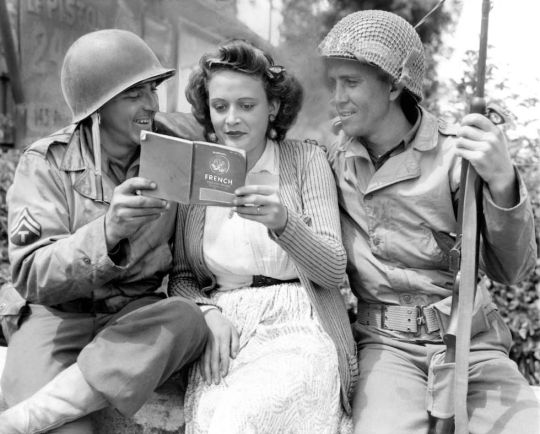
There was a lot of ground-level tension. Stars and Stripes (the U.S. military newspaper) covered the liberation of France with photos of American troops embracing and kissing French women, encouraging some of this tension.
Occasionally there was a photo of a GI giving candy to kids, but mostly coverage is about France as this land of romance and opportunity. There is evidence that some of the GIs took them at their word and after the liberation of Paris, they called Paris ‘the Silver Foxhole’ because it was the glittering place full of entertainment, but also brothels, legal and illegal, and other opportunities to meet French women.
There was also an internal power struggle between the external forces of de Gaulle and the Free French and the internal resistance, which was dominated by the French Communist Party.
There was a struggle for power over who was going to control the post-war situation. So there was liberation from the Germans, but in the power vacuum, there was also quite a bit of violence and political tension.
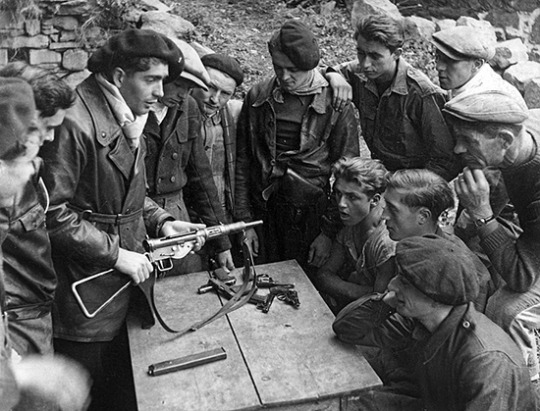
Of all the political groups in France who could really claim to have fought fascism from day one, the only group that could do that unambiguously were the Communists, going back to the 1930s.
Through the war the Communists were the largest and the most effective resistance force, particularly in the unoccupied zone. Part of that is that they were used to being organised in cells and operating clandestinely. Organisationally, they were in a good place to flip very quickly into resistance activity.
So it’s no wonder when the war was over the Communists had plenty of credit in the bank to draw from in seizing power and shaping France. One way they did it was to play up their resistance credentials (and putting under the rug any unsavoury parts). There was a short period of time at the end of the war and shortly afterward when people, especially in Central Europe, thought that communism was a viable alternative to the fascism under which they had been living with the Nazis and to the unstable governments that failed to stop the Nazis from rising to power. The French political Left benefited hugely from that in the post-war years.
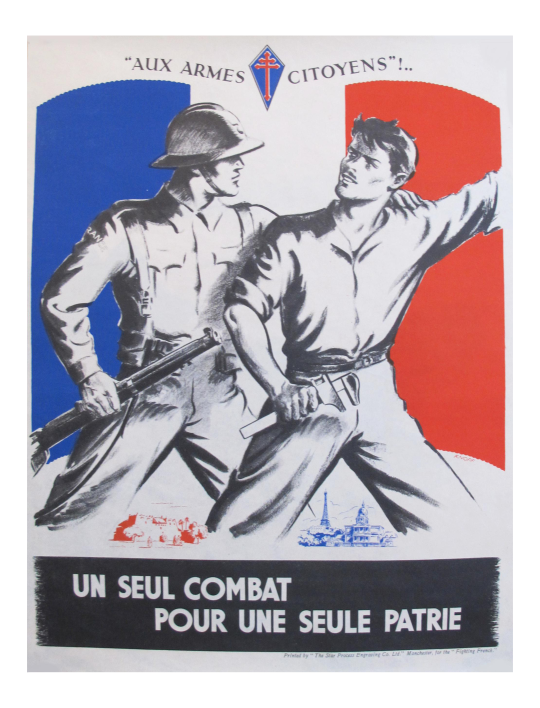
For other nationalists and other conservative French people the legacy of German occupation of France and its liberation was decidedly mixed because they themselves were divided in how they responded to the German occupation.
For a conservative patriot and nationalist like Charles de Gaulle, who more than the Communists embodied French resistance, he found the memory of D-Day so painful that he refused to participate in commemorations of the Normandy invasion during his eleven years as president of France. He did not invite heads of government to mark either the 20th anniversary in 1964 or the 25th in 1969. Old French and Allied soldiers saluted; ambassadors laid wreaths but President de Gaulle stayed away.
President Dwight Eisenhower had tried to salve the French hurt in the statement he released for the 10th anniversary in 1954. The statement did not mention the United States or its armed forces. It praised by name three British commanders, three French, one Soviet - no Americans. It credited the victory to “the joint labours of cooperating nations,” and said “it depended for its success upon the skill, determination and self-sacrifice of men from several lands.” You might want to read it as a prophylactic antidote to the boast and bombast likely to fill the air today.
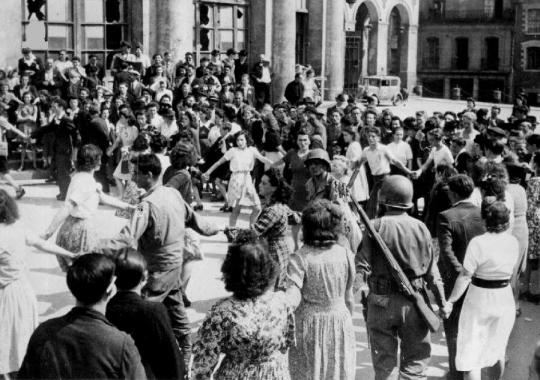
The experience of liberation was a complex thing for almost every country that experienced it from 1943 to 1945, but perhaps nowhere more so than in France. In the American and British imagination of 1944, France exists as a throng of cheering, welcoming faces, as women kissing Tommies and GIs, as a landscape through which Allied tanks and trucks roar on their way to Germany.
Depending on our mood, we romanticise the Resistance or excoriate collaborators - seldom caring to remember how ambiguously collaboration and resistance often blended together, or how often collaborators and resisters were the same people at different phases of the war or even different times of the same day.
To be liberated, first you must be defeated.
Everything about these D-Day anniversaries did remind the French of that humiliating sequence. When de Gaulle landed in Normandy for a one-day visit on 14 June 1944, he traveled back-and-forth across the English Channel in a British warship. De Gaulle’s ability to establish a provisional government depended on the permission of U.S. and British authorities - and so, ultimately, would the even more fraught question whether France would be accepted again as a major ally.

And then there were the other set of nationalists and conservative patriots who ultimately damned themselves: the Vichy regime of Marshal Pétain.
For four years, Vichy France had supplied and aided Germany. Vichy planes had bombed Gibraltar in 1940; Vichy tax collectors had extracted resources to pay the German occupiers. When Italy changed sides in 1943, it was treated as a liberated nation—but it was not accepted as a co-belligerent. France’s post-D-Day status utterly depended on British and American goodwill. For a man like de Gaulle, that dependency rankled.
De Gaulle’s famous speech of 25 August 1944, after the liberation of Paris, starkly reveals the fictions that would restore French pride.
“Paris! Paris outraged! Paris broken! Paris martyred! But Paris liberated! Liberated by itself, liberated by its people with the help of the French armies, with the support and the help of all France, of the France that fights, of the only France, of the real France, of the eternal France! … It will not even be enough that we have, with the help of our dear and admirable Allies, chased him from our home for us to consider ourselves satisfied after what has happened. We want to enter his territory as is fitting, as victors.”

France did enter Germany as a victor. French armies, supplied by the United States, subordinate to U.S. command, were stood up in 1944–45. France was allotted an occupation zone in Germany and awarded a permanent seat on the UN Security Council. (Italy was not even invited to join the United Nations until 1955.) Allied officialdom agreed to believe de Gaulle’s story that the France that fought Nazi Germany was the only ‘real France’.
But everyone understood the story was not true. The French military defeat in 1940 had torn apart social wounds dating back decades and longer.
Conservative and Catholic France reinterpreted the battles of 1940 as a debacle only of the liberal and secular France that had held the upper hand since the founding of the Third Republic in 1871 and especially since the Dreyfus affair that began in 1894. When the reactionary French writer Charles Maurras was sentenced to life imprisonment for collaboration, he supposedly replied, “It’s the revenge of Dreyfus.”
Most French business leaders and civil servants collaborated out of opportunism or necessity. The Germans held hundreds of thousands of captured French soldiers as hostages for years after 1940. But more than a few leading French people, including many right wing intellectuals and reactionary churchmen, collaborated out of a species of conviction.
The loss of the war against Germany enabled such people to launch a much more congenial culture war at home, to purge France of “liberty, equality, and fraternity,” the slogan of 1789, and establish in its place “work, family, fatherland,” the slogan of Vichy. Since 1905, France had been defined as a secular state.

Vichy put an end to all that. The defeat of France by Germany was ideologically reinterpreted as a victory of “deep France” over a shallow liberal metropolitan veneer. Subjugation was reinterpreted by Vichy ideologues as redemption. Enmity was shifted from the occupying Germans to the liberal commercial “Anglo-Saxons.” Vichy propagandists produced cartoons in which Mickey Mouse, Donald Duck, and Popeye were depicted dropping bombs on France at the behest of Jewish masters.
Anti-Allied enmity was not difficult to stoke: Allied bombing before 1944 and Allied land forces after 1944 did more damage to French cities than the Germans had in the few weeks of combat in 1940. The port of Le Havre was bombed 132 times from 1940 to 1944. The final raids in September reduced the city centre to rubble, killing 5,000, maiming and rendering homeless tens of thousands more. The modernist cityscape that replaced the former 18th and 19th-century core remains an enduring monument to the price paid by the French people for their liberation.
Vichyite enthusiasm for anti-liberalism opened a strange fluidity in French politics during and after the war. The future leader of French socialism, François Mitterrand, began his political career on the far right of French politics and worked until 1943 as a civil servant in the Vichy government. But as a socialist president after 1981, Mitterrand would raise minimum wages, cut the workweek to 39 hours, nationalise some financial institutions, and end the death penalty. He would even do what de Gaulle could never stomach: celebrate the D-Day anniversary. It was Mitterrand who decided to invite Ronald Reagan to Normandy in 1984.
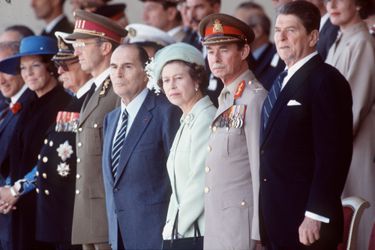
The legacy of Vichy remains a sore wound and no one really wants to touch it too much. Within families, unless they have a history of someone who was in the resistance, no one really talks about the war. Time has emotionally detached the French somewhat from past painful memories of occupation and what went on under occupation. I personally believe we in Britain - who milk the fact that we stood alone…and only because we had a stretch of water and the might of the German war machine - and those in the US - who were oceans apart - shouldn’t judge the French as we were never under occupation.

Being under occupation brings out the worst in people as much as it brings out the best in terms of heroic defiance and resistance. But also for many it just brings resigned acceptance of how things are and everyone just put their head down to just survive.
Having lived through the tremendous instability of the interwar period and having lived through the First World War, which was living memory to many adults in Europe, the calculus looks really, really different than it did from the United States.

In having the privilege to have met American veterans of the Second World War, I think it would be fair to say that D-Day is very much a major touchstone for the American identity. A non-professional army of factory workers and schoolteachers got into uniform, they went to a place they didn’t know about and they fought the ‘bad guys’, and, using their skills and their talents and their cleverness, they overcame a much more powerful, ‘demonic’ enemy with insolent bravura and sheer guts.
When Americans choose to remember this heroic history, they do so from the privilege of an easier geography. As time has separated Americans from the Second World War - for the French and even the British - there is a feeling that American memories have become more triumphalist and self-aggrandising the further we move away from the Greatest Generation (who were heroic, stoic, uncomplaining, and just sought to get on with their lives once they got back home).
To many outside observers the heroics of those brave soldiers landing in Normandy on that fateful day has been held hostage to the vicissitudes of whatever ongoing culture war is taking place between Americans. Only Americans use the word ‘Nazi’ and throw it around at other people like it was confetti. Anyone and everyone can be accused of being a Nazi these days. So often is that word thrown around that it’s lost all meaning of its true import. The best way to end a heated argument is to accuse one’s opponent of being a Nazi.
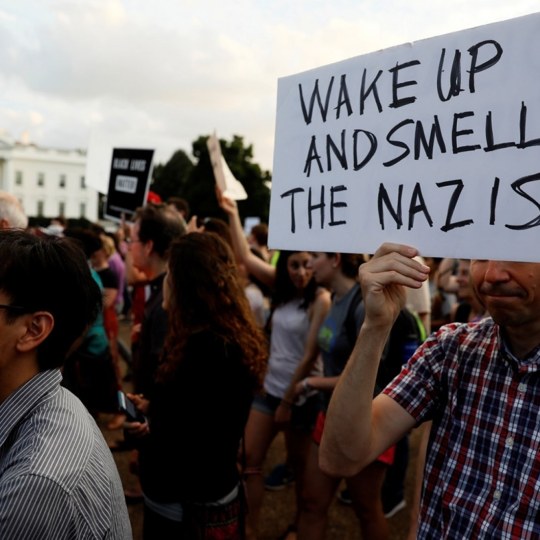
History is always held hostage to the present. Take the Donald Trump. I don’t like him and on my blog I made plenty of posts disparaging him but I don’t think I ever painted him as a Nazi or a fascist (another over used and interchangeable word). Many of the left became hysterical at his election to the presidency. The rise of Donald Trump sparked many analogies to the politics of the 1930s which was always a historically illiterate analogy as well as a very dumb one.
Unlike Europe, contemporary American mentalities are not formed by vivid personal memories of the mass bloody slaughter of 1914-18. Current Americans have experienced nothing like the Great Depression or the civil unrest that piled bodies in the streets of interwar Berlin and Paris. Present day Americans are not haunted by the possibility that domestic communists might seize power and property in a revolutionary spasm. It’s never going to be 1933 again.
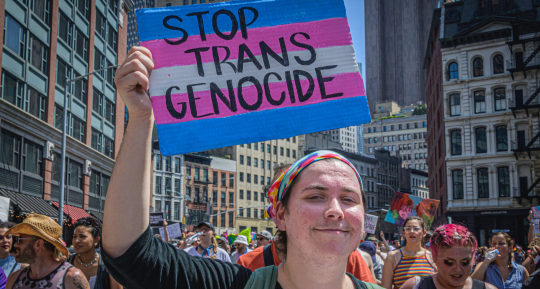
But what does remain from the past are the same human impulses for domination and control, the same way both fascists and communists thrived upon during a time of societal upheaval. Authoritarian impulses behind the curtailment of free speech, honest and critical discussions around gender ideology and indoctrination of school children, the illiberalism of many university campuses pushing diversity, inclusion, and equity indoctrination, all show they have been powerful forces for extremists to amplify in the unsettled present moment.

For the British, we tell ourselves a different story.
It is one of those intriguing coincidences of historical time that this week marked the anniversary of the evacuation of the British Expeditionary Force (BEF) from Dunkirk (June 4) and the anniversary of the D-Day landings (June 6).
Separated by four years and markedly different in terms of their ‘place’ in the Second World War – Dunkirk at the very ‘beginning’ and D-Day commencing the last act. But the two events have nonetheless become closely connected in our cultural memory – a connection that can be traced back to the war itself.
The evacuation of the British army from Dunkirk (and other French ports) in May-June 1940 was a military catastrophe of the highest order. This force had been despatched to France in the autumn as a demonstration of British support for their French ally, and for many of those in command it was seen as the successor to that valiant predecessor, the BEF of 1914.
Indeed, just like this predecessor, the army’s job was to support Belgian and French counterparts in the event of German attack, and many of its senior officers – all veterans of the First World War – likely anticipated a similarly lengthy residence across the channel. But it was not to be.
Aside from occasional moments of tactical success – notably the Battle of Arras – this 1940 ‘BEF’ eventually succumbed to the sheer speed of the German Blitzkrieg attack, which commenced in early May. Cut off in northern France and increasingly unable to affect the outcome of the Battle of France, a large-scale evacuation was commenced in late May. This evacuation - Operation Dynamo - would eventually return to Britain over 300,000 British, French, Belgian, Polish, and Czech troops.

For Winston Churchill, this was a “colossal military disaster” that he nonetheless quickly sought to convert into a “miracle of deliverance” demonstrative of British resilience and fortitude. The role of the now famous ‘little ships’ – the yachts, lifeboats, fishing trawlers and pleasure steamers – in bringing the troops back to Blighty received particular attention. Here was an example of ordinary Britons rallying to the cause while demonstrating their characteristic mastery of sail and sea. Meanwhile, Churchill readied the nation to “fight on the beaches” and to “never surrender”.
Fighting on the beaches would remain a preoccupation of Churchill’s for the remainder of the war. Indeed, soon after the British army was brought home from the beaches of France, Churchill was already pondering ways for it to return, and by 1941 he had appointed Commodore Lord Louis Mountbatten – his Chief Advisor for Combined Operations (that is, for amphibious assaults, long a favoured interest of the prime minister). This was the origins of the organisation which in due course would develop into General Dwight D. Eisenhower’s ‘Overlord’ command – the organisation which planned and commanded the Allied Invasion of Normandy in June 1944. In this sense, the very idea of ‘D-Day’ might be said to have been born on the beaches of Dunkirk.

This connection between the 1940 evacuation and the 1944 invasion similarly shaped how the British media framed the D-Day assault. British Movietone News for instance reported the landings in Normandy as “the story of how four years after Dunkirk…Britain came back” whilst The Times declared that “four years ago…the tide of war had flooded from the east into the French channel ports”, but now “the tide has turned”.
Once the war was won, such a connection between the ‘retreat’ and the ‘return’ only consolidated itself further. Various post-war histories of D-Day often opened with a chapter on Dunkirk, whilst the first feature film to focus on the Allied landings (D-Day: Sixth of June, 1956) likewise organised its narrative around this dualism, connecting via certain characters the despair of Dunkirk with the triumph of Normandy.
Ever since, this has remained a powerful dynamic shaping British memory of the war, with D-Day frequently defined by press and politicians - especially in the 1950s and 1960s - as the redemption of Dunkirk. Put differently, in our popular memory, D-Day performs a vital function for it asserts that what happened at Dunkirk was not, ultimately, a ‘defeat’ but instead a setback on the road to victory.

Separated by four years, and profoundly different in how they were lived and experienced, the connection in time and also in our memory between Dunkirk and D-Day hints at a persistent binary in our relationship with those across the channel. Put another way, our history is marked by various ‘retreats’ from Europe only to be followed later by a ‘return’. For me at least, this is the meaning - and hope - I shall choose to see this week as I reflect upon the anniversaries of 1940 and of 1944.
There is nothing wrong in telling the story that way, but it compresses a lot of complexity. What I think is regrettable is that we miss the rest of the year. Because from June of 1944 to May of 1945 is a very long, hard year, and that is when most of the casualties in Europe will be lost.
Getting back to the French I would say that when the French step back and think about the bigger picture from the actual events on D day in June 1944, it becomes ambiguous very quickly, because their Allied British and American liberators also brought destruction but freedom brought conflict and reprisal amongst themselves. Everywhere there were difficult moral and political questions about collaboration and behaviour during the occupation that were brought to the surface once the Germans were gone. It is a much more complex kind of story.
But you find it is much more complex when you dig into the British and American side as well. The mythologies never capture actual things that well. We hold hostage the genuine herosim of those brave soldiers landing on the bloody beaches of Normandy and those courageous ordinary French people resisting the Germans to the present. That’s why there is one thing that every historian says (or should say) at least six times a day: “Well, it was more complicated than that.” That applies equally well here.

Thanks for your question.
#question#ask#D Day#Normany#second world war#france#french#charles de gaulle#britian#america#history#war#legacy#french resistance#past#present#past vs present#remembrance#society#culture
49 notes
·
View notes
Text

February 2023 Stucky Fics
Completed
Heroes are Easy, People are Hard (series) by Halberth / @histrionic-dragon & art by Lorien / @drjezdzanyart
Heroes are Easy, People are Hard (Rated: T, Words: 152K)
Summary: Shuri and Wanda cleared Bucky's triggers shortly after Killmonger's attempted coup, and he and Steve went on the run. But it turns out there's more to "fixing Bucky's head" than "getting Hydra out of it." When a group of rogue scientists manage to neutralize the serum and make Steve very sick--pre-serum "this is bad" kind of sick--and they're cut off from contact with Wakanda, Bucky knows only one person with resources to help. He calls Tony and surrenders on the condition that Tony tries to help Steve. From there, it's basically three variously messed-up guys’ trajectories from "This Is Fine", "Reasonably Speaking I Know It’s Fine", "I Will Be Fine With It" to actually being fine, guest-starring a far-better-adjusted teenage boy who climbs walls, a 1957 Ford Thunderbird, two women with a keen sense of the absurd, and Bruce, the Zen master of “it’s fine that it’s not fine.” Add in the fact that Bucky's been secretly in love with Steve since the thirties and things only get harder. Learning to be a person is the hardest thing Bucky Barnes will ever have to do--but he's got company along the way.
Post-Credit Scenes (Rated: NR, Words: 2K)
Summary: “Hi.” Bucky ran his thumb around the edge of the shield. “I’m, uh. Not dead.” Takes place immediately after the end of Heroes are Easy, People are Hard.
More than the Sum of our Faults (Rated: T, Words: 15K) by Oh_i_swear / @oh-i-swear-writes & art by lemonadehearts / @lemonadeswift
Summary: When Steve Rogers adopts a dog he rescued from a collapsed building he realizes that due to the nature of his job he needs a dog sitter. Enter Becca Barnes, owner and sole proprietor of Happy Hounds, a dog walking and sitting service that comes Sam-Wilson-approved. What Steve didn’t bank on was the gorgeous owner of his dog’s best puppy pal who happens to also be Becca’s older veteran brother, and he certainly didn’t bank on running into the man - quite literally, let alone falling completely in love with him.
Another Song, Another Spring (Rated: T, Words: 46K) by somanywords / @somanywords
Summary: Bucky smiles into his phone. “Yeah, thanks, Mom. Actually, I had a few questions? What age do babies start mimicking language, aka cussing? And what age do they start walking?”
“Is this for your book?” his mother asks suspiciously.
“Yes,” Bucky says, staring into the eyes of the baby on his couch. “Yes."
On The Back of A Raindrop (Rated: E, Words: 52K) by musette22 / @musette22
Summary: Despite the fact that Steve Rogers’ life hasn't always been a bed of roses, he’s fortunate enough to have a lot of good things to call his own. He has a loving mother, two wonderful kids, marvelous friends, and a beautiful house with a big, sprawling yard, to name but a few. One thing Steve does not have, however, is green fingers. One late spring morning, Steve decides to call in the help of a local gardening company to restore his yard to its former glory. When gorgeous gardener Bucky Barnes shows up on his doorstep the next day, he unwittingly upturns not only Steve’s yard, but his life, too. Over the course of the summer, it’s more than just the garden that begins to blossom.
Atoms (Rated: M, Words: 49K) by Andrea1717 / @andrea1717 & art by kahey2804 / @kahey2804
Summary: After a hard year and the end of both his military and his short career as a personal bodyguard Steve Rogers did not expect the call from his best friend and ex- colleague Sam Wilson.
He offers him a job, full time and long term, starting on the next day.
At first it sounds perfect to finally move forward from the devastating events in his past career and life - being one bodyguard in a group of four for a rich kid from a famous lawyer. How hard can that be? What Steve didn’t expect was the kid - Bucky Barnes, twenty two, traumatized from his dark past, devastatingly beautiful and a real brat. After a while on the job Steve not only discovers that Bucky seems to play a role most of the time, he also discovers that parts of his heart who seemed to be dead for a while are very much alive.
honey don’t feed it, it will come back (Rated: M, Words: 18K) by thedoubteriswise / @thedoubteriswise & art by ellebeesknees / @ellebeesknees
Summary: He lets out a long sigh and watches Bucky. Back home he was always too vain to let more than a day’s worth of stubble build up, but now he’s got about three days of scruff on his chin. He shouldn’t look handsome like this. His eyes are shut, but Steve can tell by his breathing that he’s still awake. The cat is curled up on his stomach and purring like an idling motor.“ He’s actually pretty cute.” Bucky smiles softly, too sleepy to make whole faces.“ Damn right,” he hums. He’s stroking the cat’s fur, which is soft and fine now that it’s clean. He looks so open and inviting. Steve doesn’t close his eyes, watching Bucky’s gentle fingers and trying to come up with a plausible excuse to go touch him.
I was never cool (and all I wanted was just to have you) (Rated: E, Words: 2K) by dreamsinthewitchouse / @dreamsinthewitchouse
Summary: Bucky is slouched behind the circulation desk, chewing on a pen and staring morosely at the computer screen. He’s wearing headphones, his head just barely moving to whatever he’s listening to. Steve is halfway across the room before Bucky notices him, startled into dropping his pen. “Oh. Hi.” Bucky straightens in his chair, pulling the headphones down to his neck while his face does something complicated. “Why— is there something you needed?” “Um, yeah,” Steve says, his chest suddenly tight. “There’s this book I really wanna read?”
***This fic is complete, but the series (booksmart) is not***
He’s All That (Rated: T, Words: 88K) by crinklefries / @spacerenegades & art by fingersnaptothat
Summary: “That one,” Tony says gleefully. “I pick him.” “Him?” Bucky hisses. “Steve Rogers?” “Bet’s a bet,” Tony says smugly. “Make Steve Rogers the class president by the end of the year.” “Motherfucker,” Bucky curses. Then he takes a fortifying breath. He can do this. He’s Bucky Son of A Senator Barnes. He runs a hand through his hair, messing it up in the front just the way he knows men and women like it. “Fine,” he says. “Okay. By the end of the year. Easy.” *** When Bucky Barnes--son of a state Senator, future president of his fraternity, and co-captain of his college’s soccer team--gets unceremoniously and very publicly dumped at a party, his entire reputation hangs on by the thinnest thread. Drunk and humiliated, he does the only thing that makes sense--he makes a bet with Tony Stark. Now Bucky has the length of the school year to take Steve Rogers--small, asthmatic, environmentally-conscious art nerd, political activist, and complete social disaster--and turn him into the student body president. How many misunderstandings, shenanigans, and college tropes will abound before Bucky realizes that Steve Rogers, well, he’s all that?
WIP
Treading Water (Rated: M, Current Words: 76K) by sparkagrace / @sparkagrace & art by Dyslexic_Fetus / @reagy-jay
Summary: Olympic swimmer Bucky Barnes always believed that when the time came to retire, he would walk away with his medals and world records firmly in the history books and never look back. He never thought the water would leave him first.
***Be sure to check out the rest of this amazing series : Lane Lines: Lane Lines (Rated: M, Words: 132K), Lumière (Rated: M, Words: 5K), & New Traditions (Rated: M, Words: 6K)***
An Appropriate Omega (Rated: M, Current Words: 195K) by BeauRadley
Summary: Steven Rogers, the Duke of Brooklyn, is in a bind. The provisions of his father’s will mean he must marry before his thirty-fifth birthday or lose his mother’s inheritance. The catch? He has to marry a suitable omega. James Barnes is the third child of the impoverished Barnes family. If he or his sister don’t marry before the season is out, their family will fall further into poverty. If he doesn’t find someone else soon, he’ll be forced to marry the sinister Lord Pierce. The two men realize they can solve each other’s problems, but will their marriage of convenience turn into something more?
Dichotomy (Rated: E, Current Words: 4K) by papesdontsellthemselves / @turtle-steverogers
Summary: After getting signed to SHIELD Audio Inc., The Commandos have been taking the world by storm. Industry golden boy, Bucky Barnes, is just happy to have a chance to share his music. However, his world threatens to get turned on its head when The Commandos get sent on tour with the Howlies, where Steve Rogers spreads into his life like wildfire, waiting to burn.
Rereads
Targeting (Rated: E, Words: 149K) by queenmab_scherzo / @queenmabscherzo
Summary: Steve and Bucky end up playing for rival college football teams.
#Stucky#Steve and Bucky#Steve Rogers#Bucky Barnes#fanfic#XOXOBUCKYBARNES' Stucky Fic Reading List#february reading list
79 notes
·
View notes